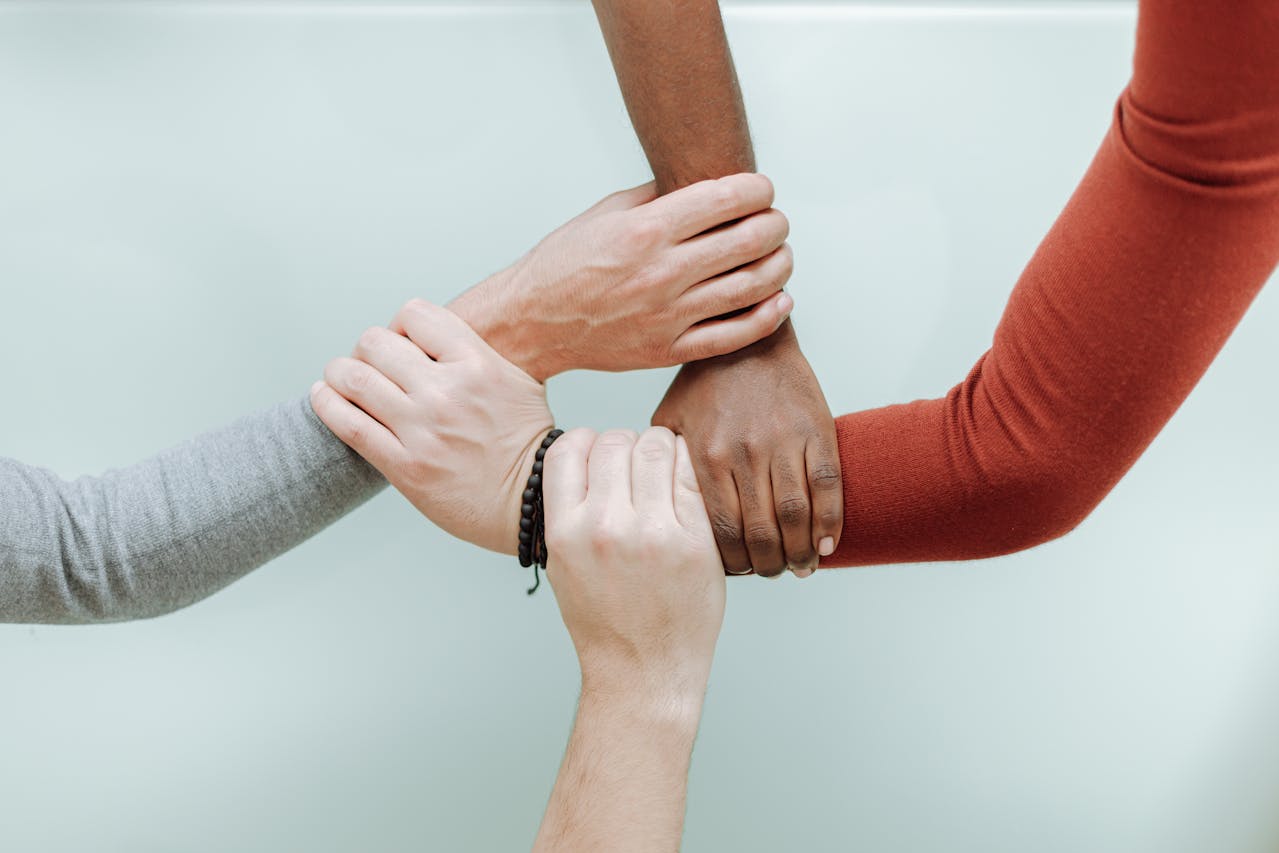Coined by National Geographic Fellow Dan Buettner, “Blue Zones” are geographic areas of the world that are home to some of the healthiest and oldest people. Many of its inhabitants live well into their 100s, enjoying optimum physical and mental health. Through his research, Buettner noticed similarities in lifestyle among these areas, such as plant-based diets, regular physical activity, and maintaining strong community relations. While we understand the health benefits of consuming a healthy diet and exercising, the benefits of community are often understated.
Why Ubuntu in the Community is Important
In this article, we will explain:
- The loneliness epidemic
- The origins of ubuntu
- The importance of community for mental health
An epidemic of loneliness
In an age of technology and with a new online dating platform released almost daily, we couldn’t feel more connected. Yet, many of us feel more alone than ever. In recent years, feelings of loneliness have been on such an incline that the World Health Organization (WHO) has recognized loneliness as a serious threat to public health.
And with half of the world’s population expected to experience poor mental health within their lifetime, we’re on the brink of a mental-health crisis. Could strengthening our social relationships be the key to addressing this crisis?
“Research has shown significant associations between social relationships and mental-health outcomes at the individual and population level,” says Dr Alicia Porter, a specialist psychiatrist in Sandton. Porter shares findings of a study suggesting that, since a sense of community is associated with improved mental health, a lack of community would then, inversely, contribute to higher rates of depression, anxiety, and stress.
Strong community and collective identify
Prof Nontembeko Bila, an associate professor in the Department of Social Work and Criminology at the University of Pretoria, in South Africa, where the incidence of poor mental health outcomes is high notes:
“The concept of belonging within a strong community fulfils a fundamental human need, positively influencing self-esteem and overall mental health.”
“Collective identity reinforces a sense of purpose, contributing significantly to an individual’s wellbeing.”
Ubuntu: a philosophy or mental-health therapy?
“Umntu ngumntu ngabantu” translates broadly as “humanity to others” – “I am because we are” and it is from this that the philosophy of Ubuntu was born.
Ubuntu gained prominence through the advocacy of the late Nelson Mandela and Archbishop Desmond Tutu. Its principles were championed as a guiding philosophy during the South African Truth and Reconciliation Commission, a process that unfolded in the aftermath of the apartheid era. Mandela and Tutu emphasized ubuntu’s significance in fostering reconciliation, understanding and communal healing.
Unlike Western ideologies that often emphasize the individual, ubuntu focuses on the collective, the significance of healthy interpersonal connections that translate into a supportive social environment that can contribute to emotional wellbeing.
By highlighting the link between individual wellbeing and community welfare, ubuntu opposes the notion that poor mental health is an individual issue, creating a culture of inclusivity and safety. With the stigma surrounding mental health, especially in African cultures, practicing ubuntu may encourage individuals to seek support without fear of discrimination.
“Ubuntu’s shared responsibility for the wellbeing of the entire community motivates individuals to make choices that contribute to both personal and collective health,” explains Prof. Bila. This encourages individuals to create spaces for open dialogue and communication, contributing to awareness and destigmatization.
Community is important
There are many elements to Ubuntu. Prof. Bila explains that these principles can range from restorative justice and relationship restoration to communal rituals and healing practices.
For instance, community-sharing circles within some cultures provide safe spaces for open dialogue, while rituals, ceremonies, and ancestor veneration draw on cultural and spiritual traditions for therapeutic benefits. Collective music, dance, and community support groups can also reinforce shared experiences and mutual support.
The rise of social media may even be considered a more modern form of ubuntu, Prof. Bila suggests, with individuals seeking out connection through likes and engagement by being their most vulnerable and honest selves.
If this is so, could ubuntu be the key to addressing mental-health challenges, regardless of one’s cultural background?
Egocentric isolation in communities
It’s possible, but it will require a collective effort, Porter says.
“The challenge of channeling ubuntu as a mental-health tool relates to past and ongoing Eurocentric education systems in Africa and the diaspora”, she says. “There’s also dwindling community interaction – urbanization, isolation in communities, and individuals and communities becoming more egocentric.”
End note
Crowning mental-health champions and promoting lived-experience voices within communities, as well as implementing policies such as ‘friendship benches’, may serve to raise awareness about mental health and reduce stigma,” she concludes.
Read more about mental health around the world:
America Has A Loneliness Epidemic, Declares U.S. Surgeon General



![women [longevity live]](https://longevitylive.com/wp-content/uploads/2020/01/photo-of-women-walking-down-the-street-1116984-100x100.jpg)










